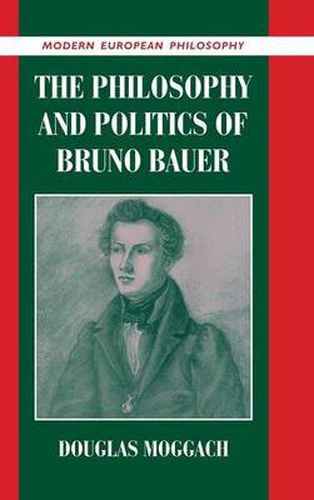Readings Newsletter
Become a Readings Member to make your shopping experience even easier.
Sign in or sign up for free!
You’re not far away from qualifying for FREE standard shipping within Australia
You’ve qualified for FREE standard shipping within Australia
The cart is loading…






This is the first comprehensive study in English of Bruno Bauer, a leading Hegelian philosopher of the 1840s. Inspired by the philosophy of Hegel, Bauer led an intellectual revolution that influenced Marx and shaped modern secular humanism. In the process he offered a republican alternative to liberalism and socialism, criticized religious and political conservatism and set out the terms for the development of modern mass and industrial society. Based on in-depth archival research this book traces the emergence of republican political thought in Germany before the revolutions of 1848. Professor Moggach examines Bauer’s republicanism and his concept of infinite self-consciousness. He also explores the more disturbing aspects of Bauer’s critique of modernity, such as his anti-Semitism. As little else is available on Bauer even in German this book will be eagerly sought out by professionals in political philosophy, political science, and intellectual history.
$9.00 standard shipping within Australia
FREE standard shipping within Australia for orders over $100.00
Express & International shipping calculated at checkout
This is the first comprehensive study in English of Bruno Bauer, a leading Hegelian philosopher of the 1840s. Inspired by the philosophy of Hegel, Bauer led an intellectual revolution that influenced Marx and shaped modern secular humanism. In the process he offered a republican alternative to liberalism and socialism, criticized religious and political conservatism and set out the terms for the development of modern mass and industrial society. Based on in-depth archival research this book traces the emergence of republican political thought in Germany before the revolutions of 1848. Professor Moggach examines Bauer’s republicanism and his concept of infinite self-consciousness. He also explores the more disturbing aspects of Bauer’s critique of modernity, such as his anti-Semitism. As little else is available on Bauer even in German this book will be eagerly sought out by professionals in political philosophy, political science, and intellectual history.